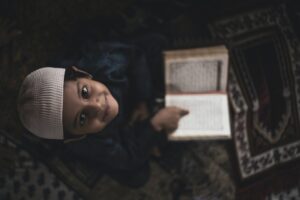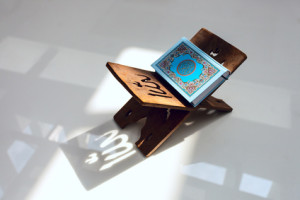Table of Contents

Every year Eid-ul-Adha Adha comes and goes in the month of Dhu al-Hijjah (ذُو ٱلْحِجَّة). In the Islamic lunar calendar, Eid al-Adha falls on the 10th day of Dhu al-Hijjah, and lasts for four days. Muslims across the globe, young or old enjoy to it fullest.
Some of you go for Hajj and some don’t but almost all of the Muslims throughout the world sacrifice animals to please their lord; Allah (subhanuhu wa-ta’ala). Here are few questions to ask our selves and ponder. This will help us align our intentions and also guide our kids:
- Is this ritual for fun and eating meat only?
- Are we slaughtering animals to please Allah only
- Is this ritual to show your wealth and to show off
- Is the poor in the society really benefiting from our sacrifice?
- Are we explaining our kids the history of sacrifice?
- Do they know the qualities, patience, piety of the mighty messenger Prophet Abraham (Peace be upon him)
- Are we keeping the best part and giving the weakest to the poor?
- Is this sacrifice prepares us to give sacrifices through the year?
- Does this EID has any impact on our kids?
What is the message we give to your kids by celebrating this ritual?
If you don’t know the answers of above then its some thing to ponder.
Eid-al-Adha origin
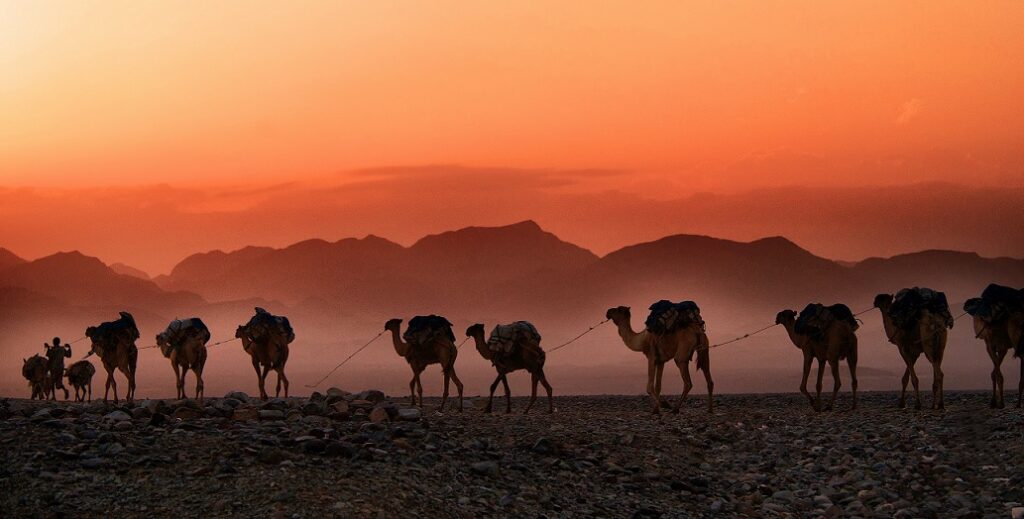
The root this sacrifice started from one of the mighty messenger of Allah named Ibrahim (Peace be upon him). He was born in a polytheist environment where people worshiped idols, moon, sun etc. He was then chosen by Allah, became the messenger and started preaching people to worship the true and one creator; Allah. He preached in the regions of Hijaz, Palestine. Prophet Ibrahim (Peace be upon him) was tested by Allah at numerous times. Some of those were:
- Spare his life to spread the message of one-oness of Allah
- Going against his clan, his father, detroying their idols
- Going against the heads of the state, not for money but for them to recognize their creator;Allah
- Being burnt by the Kings of the time and only trusting Allah through out
- On the command of Allah, going to Meccah where there was no water, food.
- Leaving his family in the wilderness of Meccah again just on the command of Allah
- Coming back to Meccah, finding his child son and on the command of Allah sacrificing him
- Building the Kabah from its base with the help of his son
As it is said, words are easily said then done. This mighty prophet’s life is full of sacrifices. Sacrificing his clan, relations, family and what more. Allah mention about Ibrahim in Quran as:
قُلْ صَدَقَ اللَّـهُ ۗ فَاتَّبِعُوا مِلَّةَ إِبْرَاهِيمَ حَنِيفًا وَمَا كَانَ مِنَ الْمُشْرِكِينَ
(Al-i-Imran – 95)
Say (O Muhammad SAW): “Allah has spoken the truth; follow the religion of Ibrahim (Abraham) Hanifa (Islamic Monotheism, i.e. he used to worship Allah Alone), and he was not of Al-Mushrikun.”
The ritual of Hajj
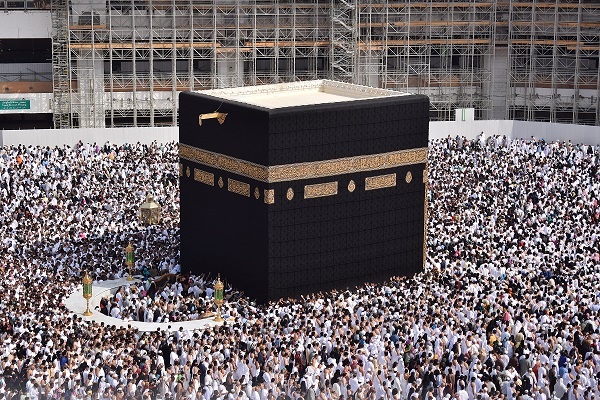
The other big event in the month of Dhu al-Hijjah is the Hajj. Again this was initiated from the time of Ibrahim when they constructed Kabaha from its original foundation. Hajj is obligatory pillar of islam, due at least once in a muslims life time if he/she can bear the expense and is healthy. Hajj it self is full of activities which requires patience.
First its the stay in Minah, then Arafat, Muzdalfah and then stonning of satan and the visit to Kabah and running between Mount Safa & Marwa. In all of these activities one has to remain patient and keep steady towards the straight path. The seven to and fro movement from Mount Saf and Mount Marwa recalls us the plight of the pious Hajra (wife of Ibrahim).
She ran between the two mounts in search of water for her kid Hazrat Ismaeel (Peace be upon him) and couldn’t find one. Finally Allah gave the orders to the angel to open up the well of Zamzam where Hazrat Ismaeel was lying. This water is both food and to quench the thirst of millions for hundreds of years without reducing its output (A miracle on its own).
In essesnce both Hajj (which also has the animal sacrifice in its rituals) or the animal sacrifice on its own reminds us of the Prophet Ibrahim (Peace be upon him). Prophet Muhammad (Peace be upon him) also performed sacrifice throught out during his stay in Medinah and guided us that this is the way our Prophet Ibrahim.
Guiding kids to get the most of Eid-al-Adha
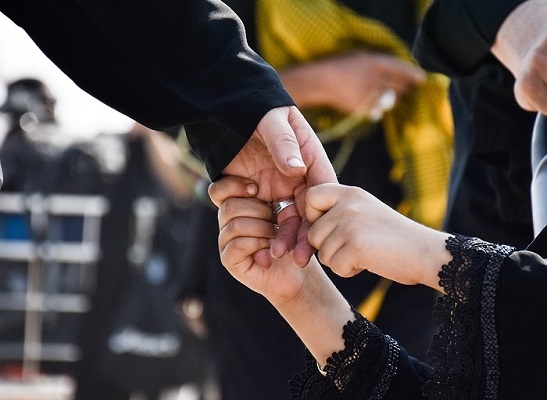
Few points which we should do before or during the 3 days of Eid-ul-Adha:
- Tell your kids the story of Prophet Ibrahim
- Why we sacrifice animals
- What benefits we get in sharing meat of animals
- Tell your kid what Prophet Muhammad (Peace be upon him) did during the month of Dhu al-Hijjah
- Tell them that this activity is an act of worship
- As Ibrahim slaughtered his son, similarly we should be prepared to offer sacrifice when Allah wants us
- By sacrificing animal we should sacrifice our money, ego, time, bad habits and show piety to fellow muslims
- Guide your kids to show eagerness to offer Hajj to wash away their sins
- Our prayer, sacrifice, living and death must only be to please Allah
- During animal sacrifice, get your kids to stand near them like Prophet Muhammad used to
- Allah ward off sins equal to the number of hairs on the body of the animal being sacrificed
- Remember the poor in your community and share the bounties which Allah has given to you
- One of the things which Allah loves on the day of sacrifice is to sacrifice animals
- Plan with your kids to celeberate your next Eid-ul-Adha with more vigour, piety and passion
- Involve your kids in finding the right animal who should be free from defects and is active and beautiful
- Allah doesn’t need the meat or blood of the animal rather Allah wants to see your heart’s intent showing why you sacrificed
- Meet and engage with your relatives and forgive them and share gifts with them
- Love and hate only for the sake of Allah and not personal reasons
Once your share these thoughts, you will insha-Allah get your kids to be more closer to Allah following the foot steps of our final Prophet Muhammad.

